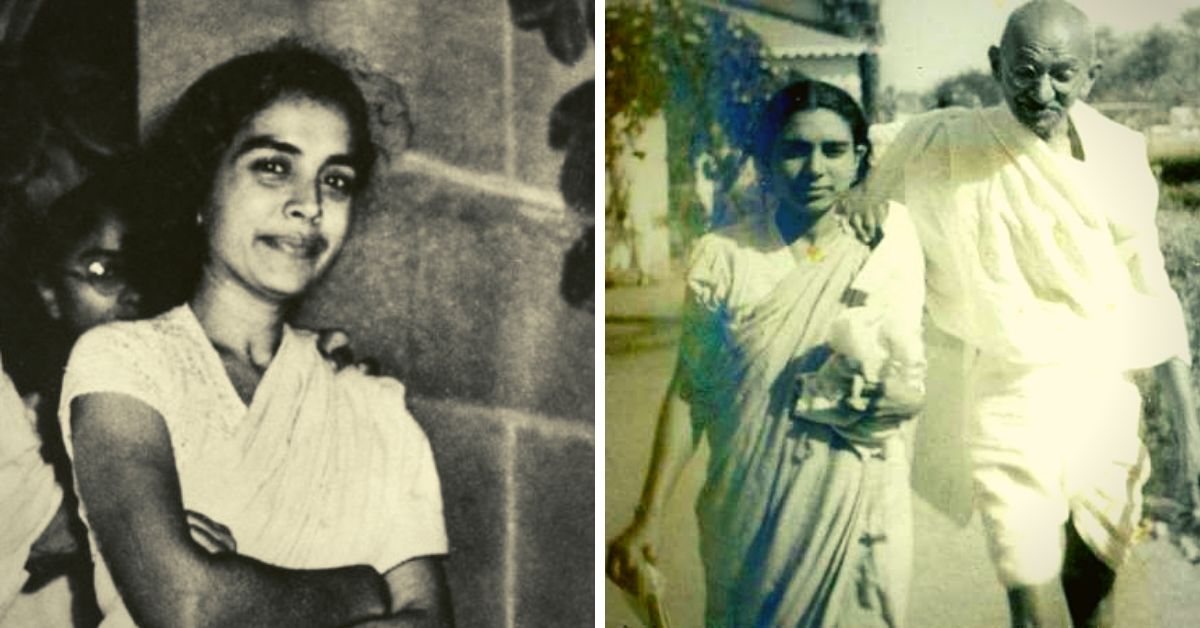

Sushila Nayar, Gandhi's Doctor Who Spent Her Life Giving Medical Care to the Poor |
- By Ananya BaruaMahatma Gandhi's personal physician, this gritty woman fought for India's freedom and the welfare of those stricken with leprosy. She went on to become independent India's first health minister of Delhi state. She was just another girl born in a middle-class family in pre-independence India. With time, her life unfolded to become an extraordinary saga of struggle and accomplishments. A freedom fighter and a doctor, who not only took care of Mahatma Gandhi, she was one of the few who set the country on a path of modern medicine devoid of superstitions.  Sushila Nayar (26 December 1914 – 3 January 2001), Source: Wikipedia; Anil Gupta/Facebook Finding one's callingBorn into a family of Gandhians, on 26 December 1914 in Kunjah (Gujarat), which is now in Pakistan, Sushila was an image of fearlessness and dedication. Sister of Mahatma Gandhi's secretary, Pyarelal, she would often visit her brother in the ashram. In 1936, when Gandhi left Sabarmati to come to Sevagram ashram in Wardha, Maharashtra, Pyarelal followed, and after two years, so did Sushila. A young medical graduate from Lady Hardinge Medical College then, Sushila was highly influenced by Gandhi's philosophy. The ashram not only provided her with spiritual and nationalistic perspectives, but also allowed her to witness community medicine in the village. It was during this time that cholera broke out in Sevagram. Owing to her knowledge, she soon found herself fighting the disease and helping people single-handedly. This became one of the many experiences that contributed to chisel her into a messiah of public health in India. She was convinced of her life's purpose and soon became Kasturba and Gandhi's physician, after returning with an MD in medicine, in 1942. However, the larger goal was to provide proper healthcare to economically backward individuals. So, in 1944, she started a small dispensary in the ashram. Its growing popularity allowed her to move out into a small clinic donated by G D Birla. This clinic was to become a seed of a hospital, and in 1945, her dream came true with the establishment of the Kasturba Hospital (now the Mahatma Gandhi Institute of Medical Sciences). With just 15 beds, the hospital began as a child and maternity hospital, which functioned under the ashram's care from 1948 to 1954. In the next few years, the hospital developed into Kasturba Health Society, thanks to her incessant efforts to take medicine to all. While working in the hospital with Dr R V Wardekar, the father of Leprosy control in India, she came across a sea of leprosy patients, since Wardah district had a high prevalence of the disease at the time. Years of close involvement with the patients made a lasting impact, paving the way for various social and medical reforms for patients in the future. Improving Public HealthAs a doctor, she always nurtured a vision to improve public health in India, and at the time, leprosy was a prominent medical concern. Sushila too was invested in the treatment of leprosy, being one the few to come to the aid of the patients. Once such instance was the compulsory sterilisation bill proposed in Sindh. In 1946, a newspaper cutting mentioning the bill had arrived at the ashram. The article said that the bill put forth by the Sindh Assembly was pushing for the compulsory sterilisation of leprosy patients. Disturbed by the news, Gandhi sought Sushila's expert opinion, which made it clear that the step was ‘unjust and unfair'. Without any room for doubt, she shared her opinion that there was no medical ground confirming compulsory sterilisation for the patients as it is neither congenital or hereditary. To strengthen the statement, she consulted Sr B C Roy from Kolkata, Dr M D D Guilder from Bombay, and Dr C G Pandit from New Delhi, among others. Because of her efforts, Gandhi wrote to the chief whip of the Congress Legislative Party, Sindh Assembly, Prof Malkani, to make sure that the Congress MLAs voted against it and had it thrown out of existence! A freedom fighter and a political figureA gritty individual, Sushila was among the many strong women who stood up to fearlessly fight for the country during the freedom struggle. From participating in the Quit India Movement to getting imprisoned in the Aga Khan Palace jail for her pro-independence ideologies, she had quite the footing to influence India's political future as well. Post Gandhi's assassination, she joined Johns Hopkins University, USA, to receive a degree in Dr PH (Doctor of Public Health), returning to India in 1950. Upon her arrival, she set up a tuberculosis sanitarium in Faridabad, becoming the head of the Gandhi Memorial Leprosy Foundation. Eventually in 1952, when the first election took place in India, she entered politics and was elected to the Legislative Assembly of Delhi. Following the path of India's first health minister, Rajkumari Amrit Kaur, Sushila became the first female health minister of Delhi state in Nehru's cabinet and served until 1955. This was followed by a tenure as the speaker of Delhi Vidhan Sabha and Lok Sabha member from Jhansi constituency in 1957. Later in 1962, she became the Union Health Minister again, serving until 1967. During this time, she realised the lack of qualified doctors in rural areas. While primary health centres were set up in remote locations, the lack of good medical consult made public health less accessible. It was this realisation, along with the support of Lal Bahadur Shastri, that she started medical colleges in rural areas. Hence in 1969, with the first batch of 60 students, the Mahatma Gandhi Institute of Medical Sciences was founded in Sevagram. It was India's first attempt to steer rural health in a new direction. With her inspiring charisma and mounting ambition, she was a beacon of feminism at a time when gender roles for women were confined to marriage and motherhood! Courtesy: The Better India, dt. 1.7.2019 |